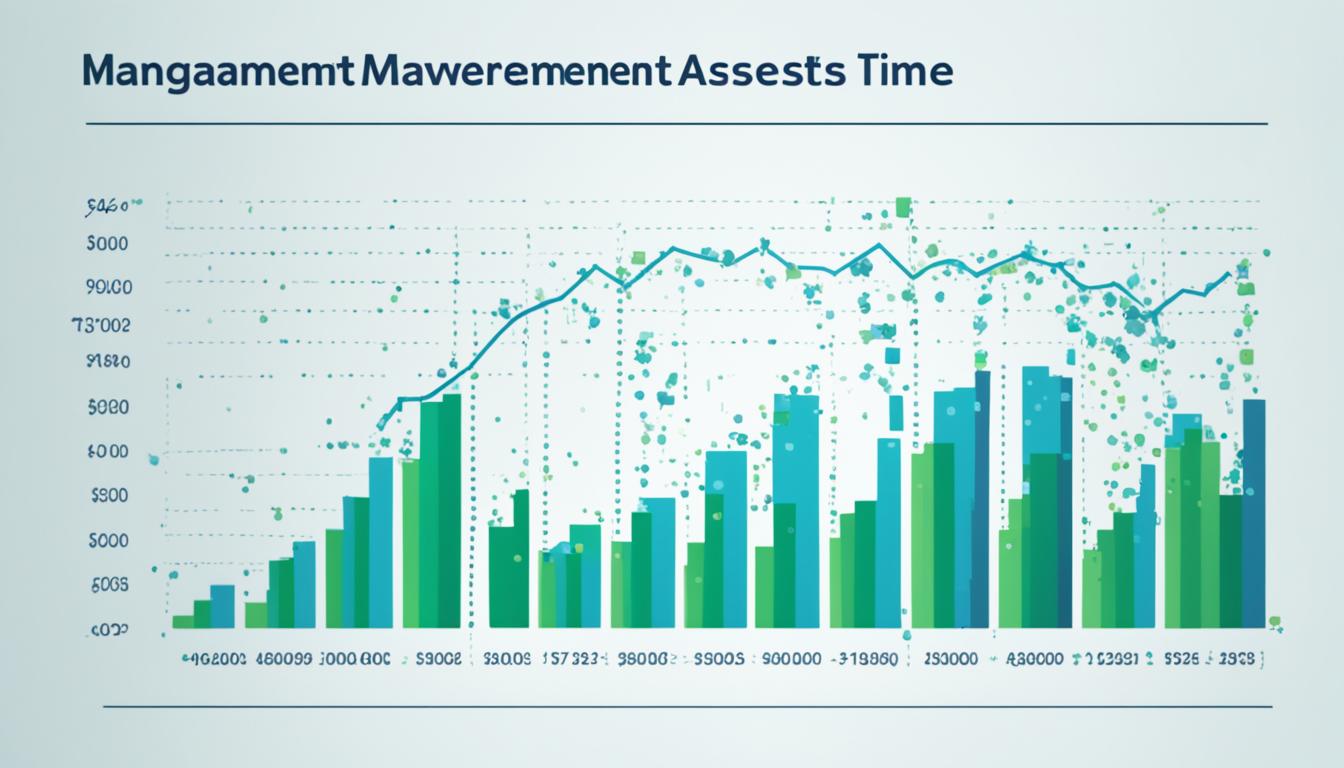Valuing a wealth management firm is a complex process that requires a comprehensive evaluation of various factors. When it comes to determining the worth of a wealth management firm, it’s important to consider different methodologies and seek the expertise of seasoned professionals. In this guide, we will explore the intricacies of wealth management firm valuation and provide valuable insights into the evaluation process.
Key Takeaways:
- Valuing a wealth management firm involves a comprehensive evaluation of financial statements, market trends, and overall performance.
- Different methodologies, such as the income approach, market approach, and asset-based approach, are used to determine a firm’s value.
- External factors like economic shifts, technological advancements, and regulatory changes can significantly impact a firm’s value.
- Accurate valuations are crucial for strategic decision-making and attracting potential investors or buyers.
- Mergers and acquisitions (M&A) activity plays a significant role in valuing wealth management firms, providing opportunities for liquidity and resolving succession planning challenges.
The Complexity of Valuation and External Factors
Valuing a wealth management firm goes beyond the surface level. It requires a nuanced understanding of the complexities involved in accurately determining a firm’s worth. Business valuations involve a comprehensive evaluation of financial statements, market trends, and overall performance. Seasoned professionals with expertise in finance and industry dynamics are essential for conducting accurate valuations.
Different methodologies, such as the income approach, market approach, and asset-based approach, are employed to assess a firm’s value. These approaches take into account various factors, including revenue, earnings, and market comparables to arrive at a fair and reliable valuation.
However, it’s crucial to note that external factors play a significant role in wealth management firm valuation. Economic shifts, such as changes in interest rates or market conditions, can directly impact a firm’s value. Technological advancements also influence valuation, as firms with innovative technology solutions may be perceived as more valuable in the market.
Furthermore, regulatory changes can bring about significant shifts in a firm’s operations, affecting its overall value. Compliance with evolving regulations is essential to maintaining the firm’s standing and preserving its worth.
When conducting a proper valuation, it’s essential to consider market trends to understand how the industry is performing and what potential opportunities or challenges lie ahead. Evaluating a wealth management firm requires a deep understanding of these market trends to ensure an accurate assessment.
Overall, valuing a wealth management firm is a complex process that demands expertise, attention to detail, and an understanding of both internal and external factors affecting a firm’s worth. By utilizing comprehensive evaluation techniques and relying on seasoned professionals, firms can accurately determine their value and make informed strategic decisions in an ever-evolving market.
Factors Influencing Wealth Management Firm Valuation
Valuing a wealth management firm requires consideration of several key factors that can influence its overall worth. These factors include economic shifts, technological advancements, regulatory changes, financial planning, strategic decision-making, and the ability to attract both investors and buyers.
- Economic Shifts: Changes in interest rates or market conditions can have a significant impact on a wealth management firm’s value. As the economic landscape evolves, firms must adapt their strategies to remain competitive.
- Technological Advancements: Innovative technology solutions can enhance a firm’s value and attractiveness. Advanced tools, software, and digital platforms can streamline operations, improve client experiences, and drive growth.
- Regulatory Changes: Compliance requirements and regulations can directly affect a firm’s operations and overall value. Staying informed and adapting to new regulatory environments is crucial for maintaining a firm’s standing in the industry.
- Financial Planning: Sound financial planning and management play a vital role in a firm’s valuation. Demonstrating strong financial performance, efficient resource allocation, and effective risk management can positively impact a firm’s value.
- Strategic Decision-Making: Making informed and strategic decisions is key to driving firm value. Identifying market opportunities, optimizing business models, and expanding service offerings can attract investors and increase a firm’s worth.
- Attracting Investors: Accurate valuations provide valuable insights for potential investors seeking investment opportunities in the wealth management industry. Displaying a clear vision, solid performance metrics, and growth potential can attract investors looking for promising ventures.
- Attracting Buyers: In cases of mergers and acquisitions or succession planning, accurate valuations can help attract potential buyers. A thorough evaluation of a wealth management firm’s value ensures fair transaction terms and maximizes the firm’s appeal.
By considering these influential factors, wealth management firms can gain a better understanding of their worth and make informed decisions to drive their success in a dynamic and competitive industry.

The Role of M&A in Wealth Management Firm Valuation
Mergers and acquisitions (M&A) activity plays a significant role in valuing wealth management firms. Strategic buyers, including private equity firms, engage in M&A to achieve operating scale, competitive service models, and leadership succession. M&A transactions can provide liquidity for firm owners and help resolve succession planning challenges.
When valuing a firm, various factors come into play. Deal structure, revenue multiples, and market comparables are all considered. The selection of a suitable valuation methodology is crucial, as it determines how a firm’s enterprise value will be determined.
Valuation methodologies differ, but common approaches include using a revenue multiple or market comparables to determine a firm’s enterprise value.
An effective M&A strategy involves analyzing the target firm’s financials, growth prospects, and the synergies that could result from the transaction. Successful M&A activities can create value for both the acquiring and acquired firms, leading to increased market share and improved service offerings.
Strategic Buyers and Private Equity in M&A
Strategic buyers, such as financial institutions or other wealth management firms, seek to expand their operations and gain a competitive edge through M&A transactions. Private equity firms, on the other hand, invest in wealth management firms with the goal of driving growth and increasing profitability.
The involvement of private equity firms in M&A transactions brings a fresh perspective and expertise in operational efficiency, which can result in significant value creation for the acquired firm.
Succession Planning and Liquidity
M&A transactions offer an opportunity for wealth management firm owners to address succession planning challenges. As the industry faces an aging workforce, successful M&A activities can facilitate smooth leadership transitions and ensure the continuity of client relationships.
The liquidity provided by M&A transactions enables firm owners to realize the value they have built over the years. This liquidity can be reinvested in new ventures or used for personal financial planning.

The image above represents the dynamic nature of M&A activities in the valuation of wealth management firms. The strategic decision to engage in M&A transactions can have a profound impact on a firm’s value and performance.
In conclusion, M&A activity plays a crucial role in valuing wealth management firms. It offers strategic buyers, private equity firms, and firm owners the opportunity to achieve operating scale, competitive advantages, and liquidity. The choice of deal structure, valuation methodology, and thorough analysis of market comparables are vital in ensuring accurate and fair valuations in an ever-evolving wealth management industry.
Leveraging Value Streams for Wealth Management Firm Valuation
Value streams play a pivotal role in valuing a wealth management firm. They enable a comprehensive view of the flow of value through various stages, starting from client onboarding and continuing to investment planning, execution, review, and client service. By mapping out value streams, firms can identify inefficiencies, reduce operational risks, and ultimately improve client satisfaction.
These value streams provide a foundation for creating detailed process maps and client journey maps, which further optimize processes and enhance the overall client experience. By streamlining the workflow and ensuring a smooth transition between different stages, firms can optimize their operational efficiency and deliver exceptional client service.
Business architects and process experts play a critical role in customizing value streams to reflect a wealth management firm’s unique needs. They leverage their expertise to optimize operations and streamline processes, ensuring that the firm operates at its best and maximizes its potential for success.
Process Optimization and Client Satisfaction
When value streams are leveraged effectively, wealth management firms can identify and address operational inefficiencies, leading to improved process optimization. By eliminating bottlenecks and streamlining processes, firms can enhance productivity, reduce costs, and deliver better results for their clients.
Moreover, value streams serve as a powerful tool for assessing and optimizing client satisfaction. By understanding each touchpoint in the client journey, firms can identify areas for improvement and enhance the overall client experience. This iterative process of refining value streams based on client feedback and market trends supports continuous improvement and ensures that clients receive exceptional service and value.
An Integrated Approach for Operational Excellence
Optimizing value streams is an integral part of a comprehensive business architecture strategy. By aligning value streams with business goals and objectives, wealth management firms can build a strong foundation for sustainable growth and success. This integrated approach ensures a seamless flow of information, efficient processes, and optimal resource allocation.

Ultimately, leveraging value streams empowers wealth management firms to better understand their operations, identify areas for improvement, and enhance client outcomes. By continuously evaluating and refining value streams, firms can drive operational excellence, mitigate operational risks, and create a robust framework for success in a rapidly evolving industry.
Conclusion
Valuing a wealth management firm requires a thorough assessment of various factors, from financial statements and market trends to overall performance. Accurate valuations are essential for strategic decision-making and attracting potential investors or buyers. M&A transactions play a significant role in the valuation process, offering opportunities for liquidity and resolving succession planning challenges.
One key element in enhancing the valuation process is leveraging value streams. By optimizing operations and improving client satisfaction, value streams contribute to an accurate assessment of a wealth management firm’s worth. From client onboarding to investment planning, execution, review, and client service, mapping out value streams enables firms to identify inefficiencies and reduce operational risks.
By considering these factors, applying the right methodologies, and engaging seasoned professionals, wealth management firms can ensure an accurate assessment of their value in the industry. This accurate assessment serves as a foundation for strategic decision-making, attracting investors, facilitating M&A transactions, and ultimately, positioning the firm for long-term success in the dynamic world of wealth management.



No comments! Be the first commenter?